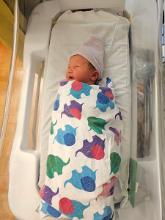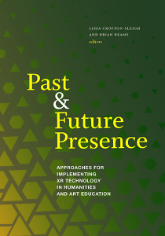Faculty Updates
Carolynn Roncaglia

In the past year I have designed new courses on ancient religious art and myth in art; I also redesigned some of our ancient history courses to satisfy SCU's core curriculum requirement. I am continuing work on a book on the ancient Adriatic, and am looking forward to resuming work at the San Giuliano Archaeological Research Project, just north of Rome, in summer 2026. I also recently welcomed two new members of my family: a baby boy in 2022 and a baby girl at the end of 2023.
Favorite Holiday Tradition: Decorating the Christmas tree.
Daniel Turkeltaub

It's been a busy few years for me since our last newsletter came out. I was department chair through COVID and then through the gradual return to working on campus and teaching in-person. When we returned to campus I began advocating for the Humanities by organizing an annual series of biweekly lunchtime presentations given by SCU Humanities faculty for the university community and by forming the Humanities Advocacy Coalition. More recently, I've partnered with Matthew Newsom Kerr (History) to launch and co-direct a new interdepartmental Medical and Health Humanities Minor. To support that minor and other endeavors that promote religious literacy in health care education at SCU, I with two colleagues, Jaime Wright (Religious Studies) and Thomas Plante (Psychology), applied for and received a $60,000 grant from Interfaith America.
I'm still teaching the signature courses some of you may have taken with me -- Greek Justice and Democratic Juries, Laughter and the Shape of Comedy, and Greek Civilization -- but American politics over the past decade has led me to design a fourth signature course -- Myth on the Democratic Stage -- which explores how ancient Athenians used tragedies and comedies to encourage deeper thinking about what constitutes good democratic citizenship. Though I continue to update those courses, most of my energies over the past two years have gone towards writing a new introductory Greek textbook. Where traditional textbooks require students to memorize dozens of paradigms and principal parts of verbs, the system I am developing relies on teaching students linguistic principles and patterns. Understanding the anatomy of Ancient Greek enables students to figure out the definitions and forms of words with deeper understanding and without anywhere near as much memorization of charts as traditional methods require. Students in the course also read excerpts from Hesiod, the Homeric Hymn to Demeter, Apollodorus, Euripides, Plutarch, and other ancient mythological sources in ancient Greek, starting right from the very first day. Initially students read the Greek works phonetically with an interlinear translation. As they learn more Greek, they figure out more and more of the Greek themselves. By the end of the course, students are reading the ancient Greek passages almost entirely on their own. Each chapter contains a discussion of the myths presented in that week's readings and their importance to Greek religion. So far, the trial runs this year and last year seem to have been pretty successful. We've had near record enrollment in introductory Greek and record retention both through the introductory sequence and into the second year. A lot of work remains to be done, however!
Favorite winter holiday tradition: I love making latkes for my family and friends. And, if you're wondering, when I was young I preferred them with applesauce but now I generally opt for sour cream (....most of the time. I'll still occasionally grab the sweet stuff.).
Lissa Crofton-Sleigh

I’ve been hard at work on Lingua Vitae (‘Language of Life’), a virtual reality experience for first year Latin students that transports them to the Roman Forum in 46 BCE to converse with ancient Romans in Latin. My student-led team, including Classics major Caitlin Gronowski ’25 and Classics minor and Computer Science major Ryan Fell ’25, as well as additional students in Computer Engineering, has researched and developed four chapters, with the eventual goal of six total. This project led to co-editing the volume Past & Future Presence: Approaches to Implementing XR Technology in Humanities and Art Education, published in May 2024 by Amherst College Press. In addition to these projects and my typical mix of language and culture classes, I’ve enjoyed teaching three new courses: one on baths and bathing culture in ancient Rome, another on the figure of Heracles / Hercules, and the last a Classical reception course, looking at the ways in which marginalized mythical characters in the ancient world are represented and reinvented in modern American culture. When I’m not busy teaching, developing VR in the Imaginarium, or doing chair duties, my almost three year old daughter keeps me plenty occupied!
Favorite Holiday Tradition: decorating our Christmas tree while listening to the Charlie Brown Christmas soundtrack by the Vince Guaraldi Trio.